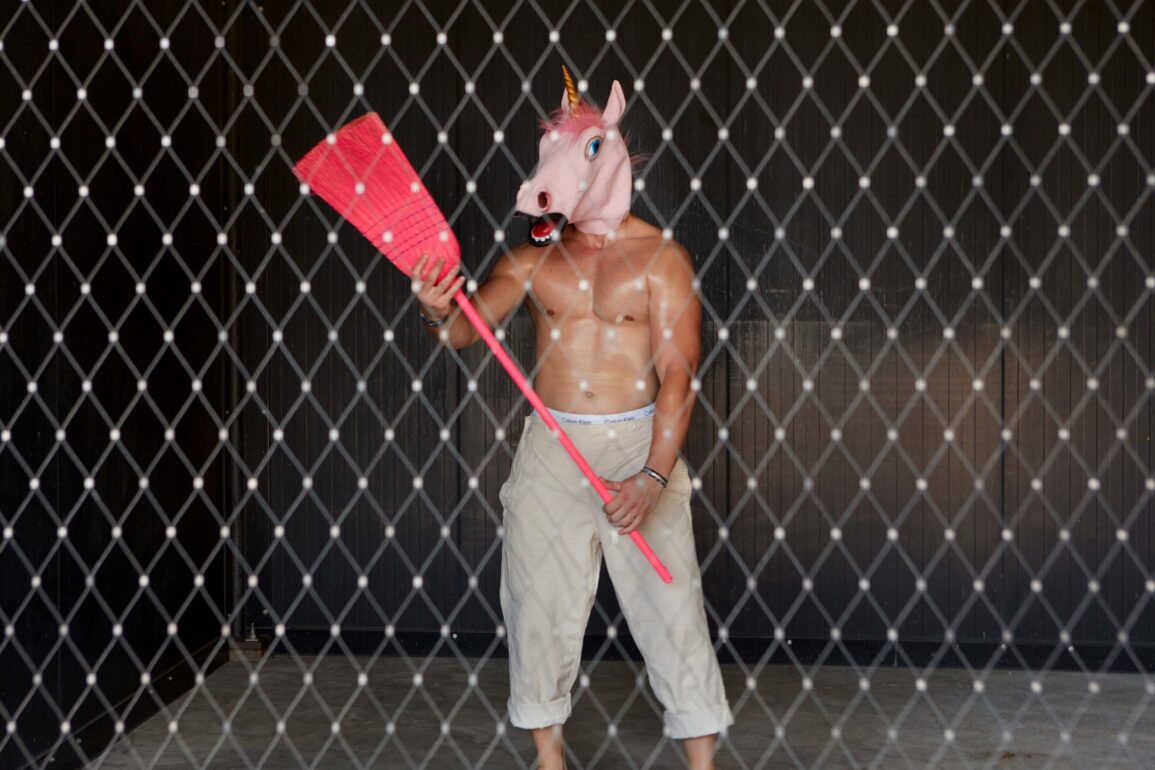Theatre grapples with our society and is yet part of it: it interacts with the audience and its location, and chooses its actors.
«‘It’s simply wonderful to be able to perform in front of an audience again. We were delighted to be able to unveil the first premieres,’ says Florian Scholz, Director of Bühnen Bern, formerly Konzert Theater Bern. ‘We received an enthusiastic response from critics and the general public alike.’ This is the second season to start under the pandemic regulations. And although the current situation allows the theatre to operate once again, it takes some getting used to – particularly for the audience. ‘With sales, we notice that people first need to get used to a “normal” life again. But we’re optimistic: season ticket holders, for example, are turning up just as before.’

Taking theatre to its audience
Theatre needs an audience, direct contact and an authentic response. Bühnen Bern is hitting the road with a format that makes it easier for people to access: ‘Thanks to “Schauspiel mobil”, we are now able to perform on the fringes, too,’ says Scholz. ‘We travel there in a van, unload and put on a play.’ The aim is to reach people who have not (yet) found their way to the theatre, with a small team taking the theatre across the entire canton. ‘It is very important to take theatre to the fringes, so we can lower the threshold for it and potentially even to encourage these people to visit our theatre. After all, our theatre is there for all the whole area, not just the city,’ says Scholz. The theatre targets youth centres, churches, synagogues, mosques and association halls. These performance venues challenge the actors, demand respect and enable new things. There are requirements for the location in terms of capacity; it must have room for an audience of at least 80. The mobile theatre remains secondary to the imposing theatre itself in Bern. ‘This theatre should also be a low threshold place,’ says Scholz. Appropriate pricing is required to ensure it is accessible to everyone, as he explains: ‘Our pricing structure is intended to ensure that anyone who wants to attend a show can do so. But of course there’s room for improvement here.’
‘Inside’ versus ‘outside’
Ausbruch takes its audience to a very special locale: named after the German word for ‘outbreak’, this is Switzerland’s first prison theatre. When it launched in 2012, it was not easy to involve prisons in the project. ‘A great deal of trust is required on the part of the prison,’ says Anja Schmitter, who is in charge of text and communication at Ausbruch. The reluctance is understandable, as letting a theatre group through an institution’s doors represents a major challenge in terms of security. To make things harder, Ausbruch was Switzerland’s first, and is still the only, prison theatre. ‘Prison directors had no comparable experience,’ she says.
But with every completed project, levels of mutual trust increased. The team is currently working on a series entitled ‘The 10 Commandments’, with which it hopes to take these millennia-old instructions and rework them in a fresh artistic (and social) context. ‘We chose this topic because we think it is full of potential in terms of talking to prisoners about crime, guilt, society, rules etc. within a theatrical framework,’ says Schmitter. The plays are developed through a collaborative approach. ‘Inside’ versus ‘outside’, ‘before’ versus ‘now’ – the realities of daily life always come to bear. ‘Once rehearsals start, both we and the prisoners forget the prison setting,’ she says. Alongside artistic skills, this theatre work also requires social skills on the part of the prisoners, such as teamwork, learning how to display confidence, etc. As a result, the Ausbruch team believes that theatre can at least make a small contribution to the rehabilitation of prisoners. ‘However, we see ourselves first and foremost as theatre activists who work with people to put on a show,’ says Schmitter. That said, transparency is important to them, too: ‘When visiting the prison theatre, the external audience receives a unique insight into the reality of the penal system, and thus also the reality of life for part of society that is locked up,’ she says. ‘Theatre has an impact on the audience, but it’s also an intense experience for the artists.’
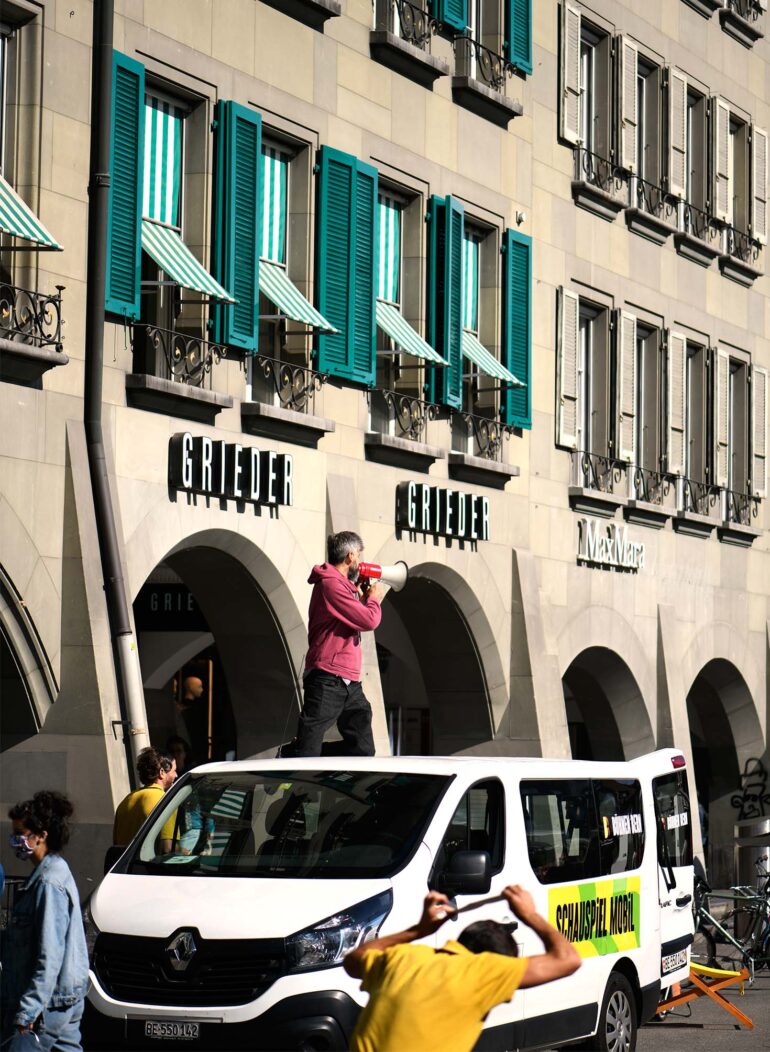
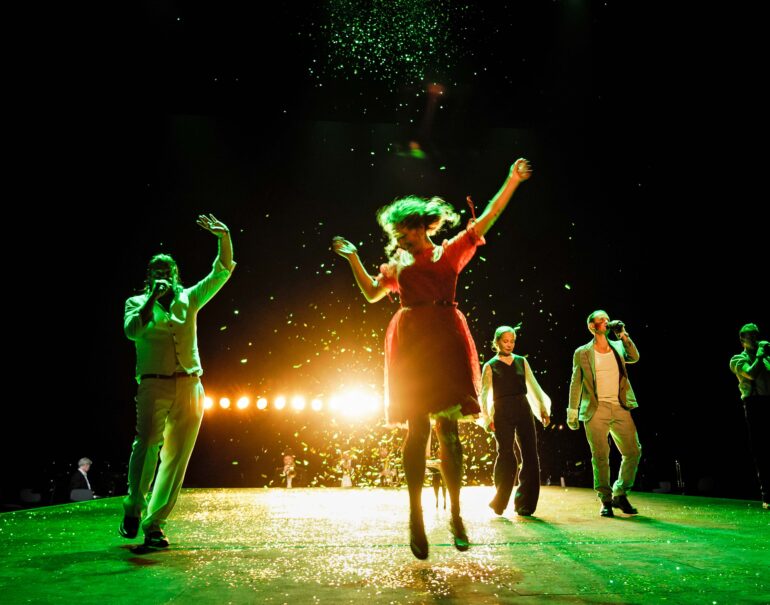
Bühnen Bern: Director Roger Vontobel with the Schauspielmobil (left). Production of “Rose Bernd” (below)
Partizipative Kulturprojekte
The content of the play, the world of the audience and the reality of the people making the art: a production comprises many elements that relate to each other in different ways. Leticia Labaronne, Director of the Center for Arts Management at ZHAW, says: ‘For the performing arts in particular, including drama, there can be major discrepancies in terms of the social dimension of sustainable thought and action.’ As far as social issues go, the theatre world is lagging behind, not just in terms of a participatory culture, but also in terms of social security for cultural professionals, as the pandemic made abundantly clear.

However, cultural organisations can also have an outward social impact, taking on the role of mediator: ‘Artistic and creative engagement with societal issues create the space within which to reflect on these topics.’ At the same time, theatre work itself can have a major impact. Labaronne is currently involved in a research project investigating the integration potential offered by participatory cultural sites and projects for people from different backgrounds and cultures. The results show that ‘working on participatory cultural projects has a positive impact on how participants engage in society’. However, the versatility of theatre when it covers both cultural and social aspects does not necessarily make it more successful in terms of generating funds. ‘Often, projects like this are not allocated integration funding, or the potential applicants are not aware of appropriate funding,’ says Labaronne. The uniqueness of Ausbruch has both advantages and disadvantages when looking for funds. Foundations recognise the added value of the project. ‘Nevertheless, this does not make it any easier for us to find funding or support from foundations,’ says Schmitter. Their special challenge? There is a lack of regular support from cantons because this support is often connected to a performance space. As a charitable association, however, they are subsidised by the Federal Office of Culture.
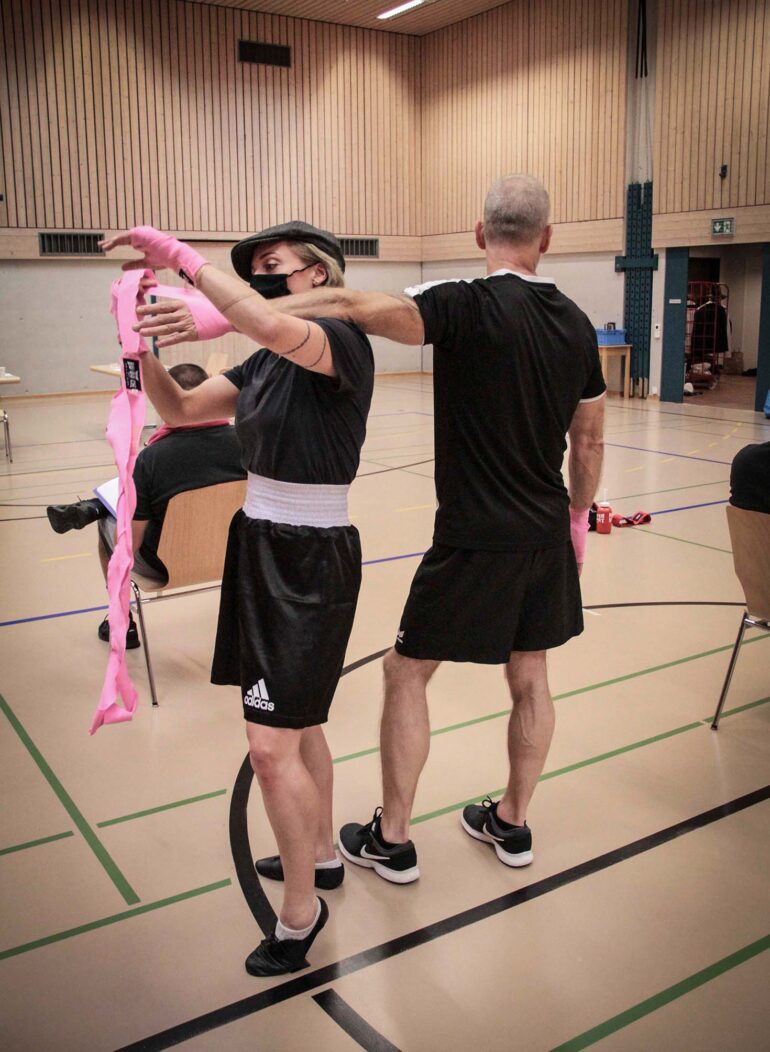
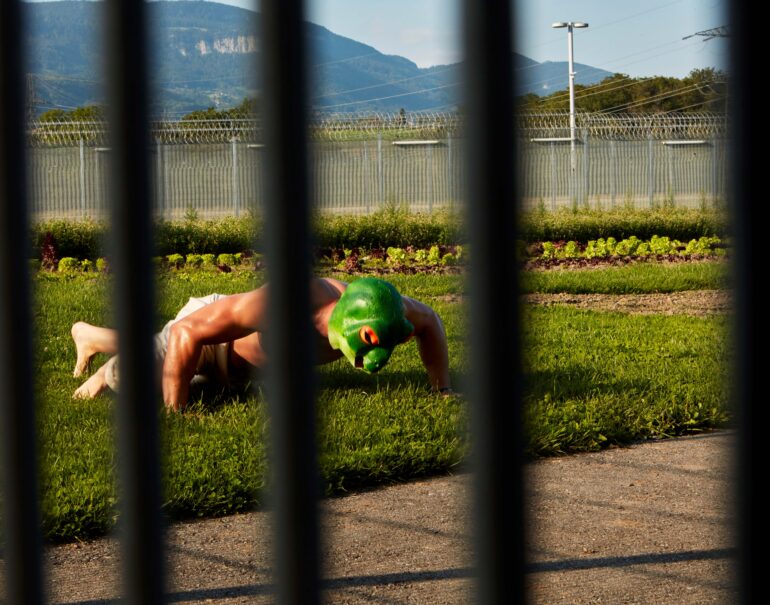
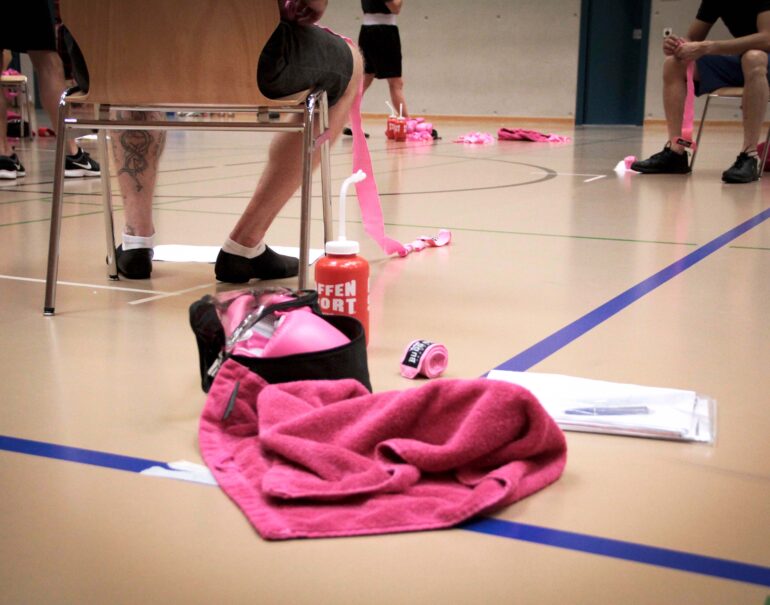
AUSBRUCH prison theatre during rehearsals
Cultural enterprises of the future
Labaronne observes that cultural organisations can be successful in terms of fundraising if they take a professional approach. It is crucial to link the right case for support with the right projects and target groups. ‘The coronavirus crisis has shown that the cultural enterprises of the future will survive only in close partnership with the public sector and private cultural foundations, and, increasingly, thanks to the involvement of private individuals and companies. Successful collaborations have a strong focus on developing synergies between both parties and new narratives,’ she says. However, the pandemic has shown how cultural institutions can take extraordinary steps to try out new things.
For example, Zurich Opera House made a streaming service available free of charge under its ‘Digital opera for all – replay’ banner, and tested out a ‘pay what you want’ approach. ‘This was intended to provide relevant insights into the willingness of digital cultural visitors to pay money for this, which, in turn, can contribute to accurate pricing for digital formats,’ says Labaronne. Bühnen Bern was not spared the consequences of the pandemic: ‘On a financial level, the opportunity to register for short-time work literally saved us,’ says Scholz. Solidarity was extremely important in this extreme situation, he says, and it helped that Bühnen Bern is a foundation. ‘A foundation aligns nicely with the general way of life in Switzerland: we do things together,’ says Scholz. ‘For me, as I have just come from Austria, this has been a new and highly enriching experience. We’re stronger together.’
Ausbruch’s next performance:
THE FIFTH COMMANDMENT – THOU SHALT NOT KILL
Liebenfels Crematorium, Baden AG: 17 and 25 February 2022
www.ausbruch.ch

